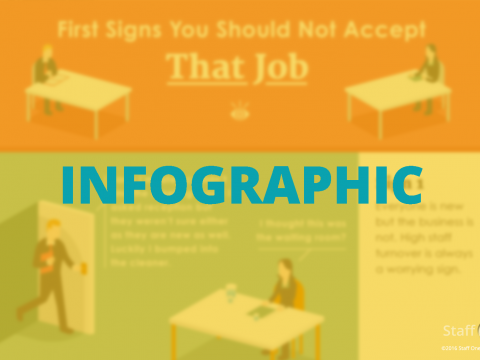- Contact us:
- 03300 535 600
- [email protected]

Why the work week should be shorter – according to science
April 27, 2017
Approved to supply: EDF
May 4, 2017We’ve teamed up with Forbes CommunityVoice™ to promote this blog post. CommunityVoice™ allows professional fee-based membership groups (“communities”) to connect directly with the Forbes audience by enabling them to create content – and participate in the conversation – on the Forbes digital publishing platform. Each topic-based CommunityVoice™ is produced and managed by the group.
If it seems like everyone is on LinkedIn these days, it’s because they probably are. With the median number of years at one job at 4.2 years and 94% of recruiters using LinkedIn as a tool to vet candidates, it’s no wonder LinkedIn has become an active professional hub.
But don’t just slap your profile together and hope for the best. Below, members of Forbes Coaches Council discuss 10 common mistakes to be aware of so that you can rise above the competition.
 A common mistake is to use canned “resume-speak” words that may be made up or overused. Why say, “Our cross-functional team implemented, proceduralized, and metricized our program under my leadership?” How about, “I lead the team that initiated the project, and we saw it through to completion. We came in ,000 under budget, three weeks prior to the deadline.” – Casey Carpenter, The Sales Breakthrough Coach
A common mistake is to use canned “resume-speak” words that may be made up or overused. Why say, “Our cross-functional team implemented, proceduralized, and metricized our program under my leadership?” How about, “I lead the team that initiated the project, and we saw it through to completion. We came in ,000 under budget, three weeks prior to the deadline.” – Casey Carpenter, The Sales Breakthrough Coach
 Failing to demonstrate value to the target audience can cause confusion and lack of interest. To garner attention from prospective employers, job seekers must be selective and strategic in profile details, peppering in keywords and quantifiable evidence that is well-aligned with reader requirements. Robust details are great, but tailored content will boost visibility and reader retention. – Adrienne Tom, Career Impressions
Failing to demonstrate value to the target audience can cause confusion and lack of interest. To garner attention from prospective employers, job seekers must be selective and strategic in profile details, peppering in keywords and quantifiable evidence that is well-aligned with reader requirements. Robust details are great, but tailored content will boost visibility and reader retention. – Adrienne Tom, Career Impressions
 Too many job seekers treat LinkedIn like a fill-in database. Instead, think of it as a tool to introduce yourself, tell your story, and showcase your professional skills and talents. – Shannon Bradford, Rich Work Zone
Too many job seekers treat LinkedIn like a fill-in database. Instead, think of it as a tool to introduce yourself, tell your story, and showcase your professional skills and talents. – Shannon Bradford, Rich Work Zone
 Standing out from the crowd is essential on LinkedIn, and easier than you think! Your headline is the first thing people see when you appear in a search result, so make it count. Use this formula: Job Title | Keyword describing your top skill | Value proposition statement. For example: VP Customer Care | Performance Management | Technology Leader Inspiring High-Performing, Customer-Focused Teams. — Julie Bondy Roberts, Coming Alive Career Coaching, LLC
Standing out from the crowd is essential on LinkedIn, and easier than you think! Your headline is the first thing people see when you appear in a search result, so make it count. Use this formula: Job Title | Keyword describing your top skill | Value proposition statement. For example: VP Customer Care | Performance Management | Technology Leader Inspiring High-Performing, Customer-Focused Teams. — Julie Bondy Roberts, Coming Alive Career Coaching, LLC
 Because the technology that drives LinkedIn is a database, it has a preference for fresh vs. stale data. If you don’t refresh your profile in days, weeks, months or (yikes!) years, it will slide in the search rankings and essentially disappear from the view of recruiters and hiring executives. Enhance the value of your profile via weekly new content or updates. – Cheryl Lynch Simpson, Executive Resume Rescue
Because the technology that drives LinkedIn is a database, it has a preference for fresh vs. stale data. If you don’t refresh your profile in days, weeks, months or (yikes!) years, it will slide in the search rankings and essentially disappear from the view of recruiters and hiring executives. Enhance the value of your profile via weekly new content or updates. – Cheryl Lynch Simpson, Executive Resume Rescue
 Too often, when I read a client’s resume and LinkedIn profile, I notice the focus is very different. It’s important to be consistent in your brand and message both on your resume and on LinkedIn. If you specialize in sales management but your LinkedIn talks about your consulting business, you are sending a very mixed message. Be clear on your focus and avoid confusion. – Erin Kennedy, Professional Resume Services, Inc.
Too often, when I read a client’s resume and LinkedIn profile, I notice the focus is very different. It’s important to be consistent in your brand and message both on your resume and on LinkedIn. If you specialize in sales management but your LinkedIn talks about your consulting business, you are sending a very mixed message. Be clear on your focus and avoid confusion. – Erin Kennedy, Professional Resume Services, Inc.
 Stop using generic job titles in the headline. The headline is valuable real estate. Titles like “Associate Director” or “Account Executive” make the job seeker look like a commodity rather than a stand out prospect. A headline like “Account Executive Helping Small Businesses Maximize Advertising ROI” lets the audience know who you are, what you do, and who you help. – Mo Chanmugham, Esq., CPCC, MGC Coaching
Stop using generic job titles in the headline. The headline is valuable real estate. Titles like “Associate Director” or “Account Executive” make the job seeker look like a commodity rather than a stand out prospect. A headline like “Account Executive Helping Small Businesses Maximize Advertising ROI” lets the audience know who you are, what you do, and who you help. – Mo Chanmugham, Esq., CPCC, MGC Coaching

With over 400 million members, LinkedIn possesses personal brand power. It can also diminish your brand if you constantly update your network and, by proxy, those degrees of separation with news, events, articles
and “interesting items” not associated with your brand. With LinkedIn’s new ability to share video, pictures and more on your profile, the oversharing can take some dangerous curves. – John O’Connor, Career Pro Inc.
 Scrub potential confidential or competitive info from your profile. Then, check your privacy settings. You want recruiters, employers and clients to find you, so your profile needs to be public. But personal details like martial status and birthday should not be visible, nor should your membership in job-related groups or your connections. And please don’t upload your resume to your profile! – Shauna C. Bryce, Bryce Legal Career Counsel
Scrub potential confidential or competitive info from your profile. Then, check your privacy settings. You want recruiters, employers and clients to find you, so your profile needs to be public. But personal details like martial status and birthday should not be visible, nor should your membership in job-related groups or your connections. And please don’t upload your resume to your profile! – Shauna C. Bryce, Bryce Legal Career Counsel
 Telling a story that gives a recruiter an idea of who you are is an opportunity to present yourself in the most positive light at first sight. Be sure to have your past and current jobs up to date with key results listed, have a good picture, list your strengths, and use the summary to tell your story — a story of goals and experiences that lets others know who you are. – Leslie Mizerak, Lead Coach Mentor, LLC
Telling a story that gives a recruiter an idea of who you are is an opportunity to present yourself in the most positive light at first sight. Be sure to have your past and current jobs up to date with key results listed, have a good picture, list your strengths, and use the summary to tell your story — a story of goals and experiences that lets others know who you are. – Leslie Mizerak, Lead Coach Mentor, LLC



